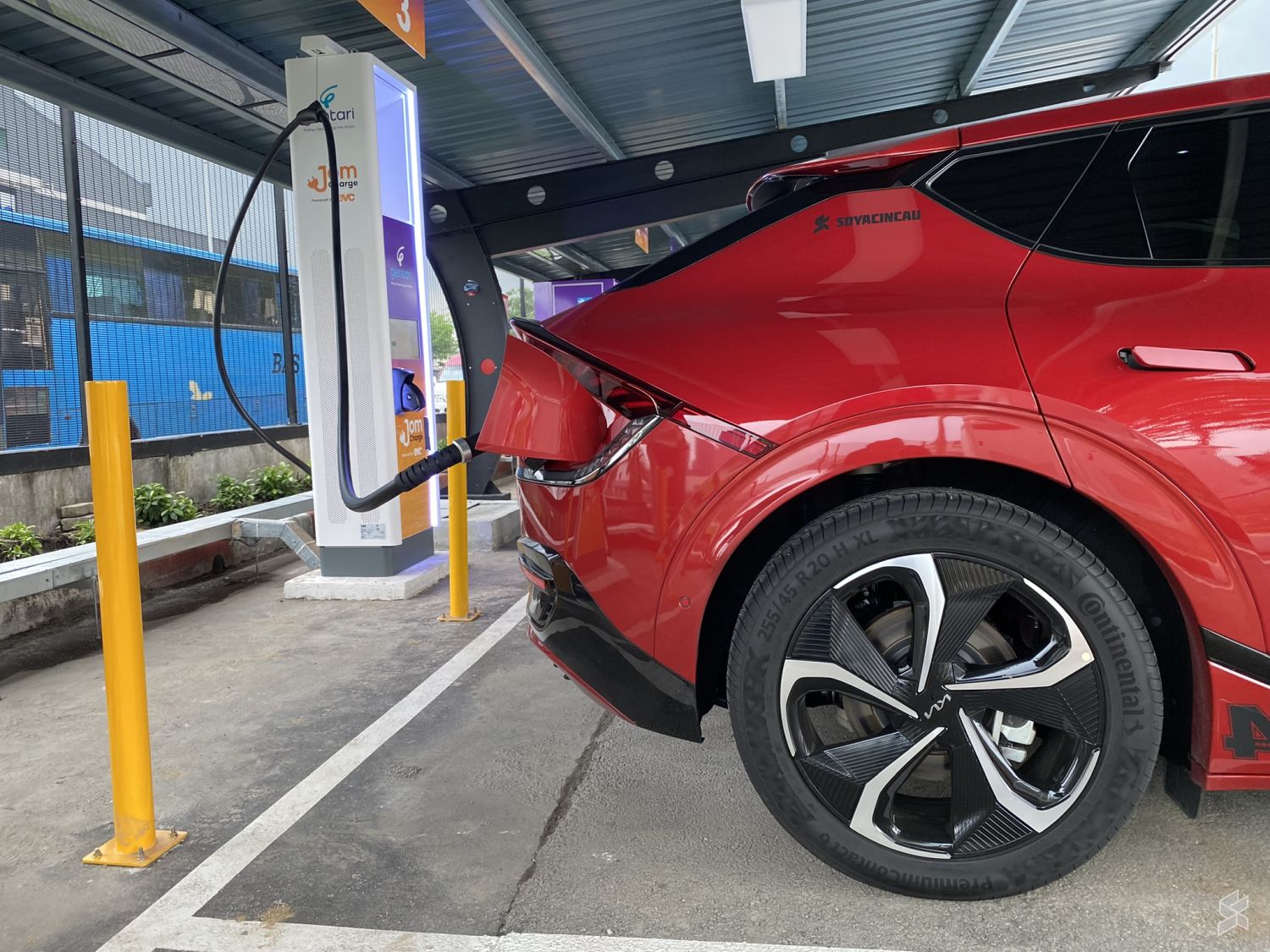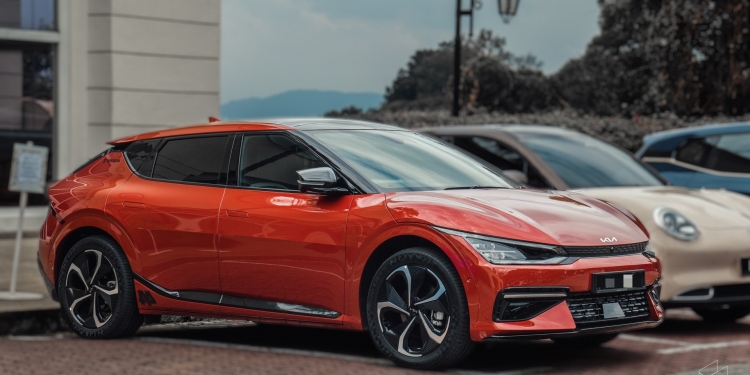It appears the Kia EV6 is about to get a boost to its already impressive capabilities. Semiconductor maker STMicroelectronics has announced that the Hyundai Motor Group—which, in case you forgot, owns Kia—has selected its silicon carbide (SiC) power modules for vehicles built on the Electric Global Modular Platform (E-GMP). These include the EV6 as well as the Hyundai Ioniq 5 and 6 and the Genesis GV60.
The supplier said its third-generation STPower SiC MOSFETs, integrated into its Acepack Drive power module package, will be specific to the EV6, although it declined to mention whether it will be installed across the lineup or reserved for an upcoming variant. “Our third-generation SiC technology ensures the greatest power density and energy efficiency, resulting in superior vehicle performance, range and charge time,” said ST’s Automotive and Discrete Group president Marco Monti.
Sang-Cheol Shin from Hyundai’s Inverter Engineering Design Team added: “ST’s SiC-MOSFET based power modules are the right choice for our traction inverters, enabling longer range. The cooperation between our two companies has realised a significant step towards more sustainable electric vehicles, leveraging ST’s continuous technological investment to be the leading semiconductor actor in the electrification revolution.”

The latest drive modules are already in production and support up to 1,200V (the EV6 currently has an 800V electrical architecture), direct liquid cooling, a pin-fin array for heat dissipation, active metal based (AMB) substrates and either screwed or welded busbars in different lengths. Production is expected to be boosted next year when a fully integrated SiC substrate manufacturing facility at Catania, Italy goes online.
It should be noted that SiC power modules are already being used in E-GMP products on the rear motor, whereas the front motor gets regular silicon for cost reasons. As InsideEVs notes, this likely means the new power modules are destined for the front motor to replace the silicon-based units, meaning that only all-wheel-drive models (like the Malaysian-spec EV6 GT-Line AWD) will benefit from this move.
However, there is a distinct possibility that the new modules will also find their way to the rear motor, enabling Kia to move the EV6 onto a 1,200V architecture for even faster charging. According to Hyundai’s Head of Electrification Development Center Choi WooSuk, the switch to a SiC power module for the rear motor not only led to a 5% improvement in range but also boosted charging speeds by up to three times compared to a 400V silicon module.

Using the 5% metric, it is possible to expect the EV6’s range to be boosted from 508km on the GT-Line AWD to 533km. Charging speeds may also be bumped up from the current maximum of 235kW, allowing drivers to make better use of the most powerful DC fast charging stations around—like Gentari’s new 350kW station at X Park Sunway Serene.
As yet, it’s unclear when Kia will update the EV6 with the new hardware (perhaps during the 2023 model year changeover), let alone the variants getting it or its availability for the Malaysian market. We’ve reached out to local distributor Bermaz Motor and we will update this story with more information as it comes.








